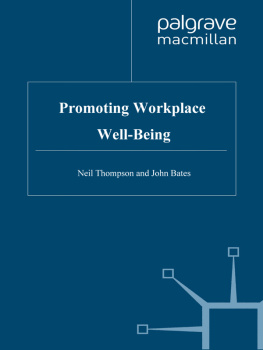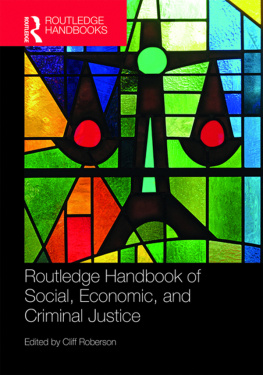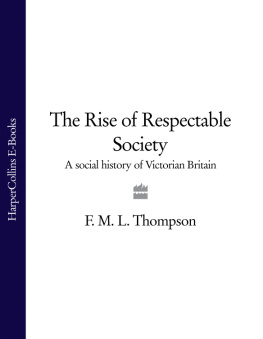SOCIAL PROBLEMS AND SOCIAL JUSTICE
SOCIAL PROBLEMS AND SOCIAL JUSTICE
NEIL THOMPSON
2017 Neil Thompson
All rights reserved. No reproduction, copy or transmission of this publication may be made without written permission.
No portion of this publication may be reproduced, copied or transmitted save with written permission or in accordance with the provisions of the Copyright, Designs and Patents Act 1988, or under the terms of any licence permitting limited copying issued by the Copyright Licensing Agency, Saffron House, 610 Kirby Street, London EC1N 8TS.
Any person who does any unauthorized act in relation to this publication may be liable to criminal prosecution and civil claims for damages.
The author has asserted his right to be identified as the author of this work in accordance with the Copyright, Designs and Patents Act 1988.
First published 2017 by
PALGRAVE
Palgrave in the UK is an imprint of Macmillan Publishers Limited, registered in England, company number 785998, of 4 Crinan Street, London, N1 9XW.
Palgrave and Macmillan are registered trademarks in the United States, the United Kingdom, Europe and other countries.
ISBN 9781137603616 paperback
This book is printed on paper suitable for recycling and made from fully managed and sustained forest sources. Logging, pulping and manufacturing processes are expected to conform to the environmental regulations of the country of origin.
A catalogue record for this book is available from the British Library.
A catalog record for this book is available from the Library of Congress.
For John and JanCONTENTS
ACKNOWLEDGEMENTS
Once again I am indebted to a number of people in the development of this book. I am grateful to Peter Hooper and his colleagues at the publish-ers for their efforts to make the project a reality. I am also grateful to those friends and colleagues who were kind enough to offer helpful comments on the initial draft and endorse its value as a text. Dr John Bates, formerly of Liverpool Hope University, Dr Hefin Gwilym of Bangor University, Professor Bernard Moss of Staffordshire University, Dr Iolo Madoc-Jones and Dr Wulf Livingston of Glyndr University, Dr Jan Pascal of Bishop Grosseteste University, John Sawtell, formerly of La Trobe University, Dr Paul Stepney of Tampere University, Finland, Graham Thompson, formerly of Bangor University, plus Jan Cartmell and Nigel Hinks from my online learning community (the Avenue Professional Development Programme). In addition, Dr Sue Thompson has been immensely supportive in so many different ways.
Anna Thompson and Sioned Phillips deserve mention for their practical support and eagerness to help.
Finally, it would be remiss of me not to acknowledge my debt of grati-tude to two groups of people. One would be the range of professionals I have worked alongside at the coal face in tackling a wide range of social problems while also seeking to promote social justice. The other would be the large number of people I have worked with in trying to help them overcome, resist and learn from the detrimental consequences of a society that pays more attention to profit than to people I have learned so much from both groups, especially the latter.
ABOUT THE AUTHOR
Dr Neil Thompson is an independent writer and online tutor. He has held full or honorary professorships at four UK universities. He is currently vis-iting professor at Wrexham Glyndr University where he is involved in the MSc Advanced Practice in the Human Services which is based around his published work. He has almost forty years experience in the people professions as a practitioner, manager, educator and consultant. He has thirty-seven books to his name. These include:
Power and Empowerment (Russell House Publishing, 2007)
The Critically Reflective Practitioner (with Sue Thompson, Palgrave Macmillan, 2008)
Promoting Equality: Working with Diversity and Difference (Palgrave Macmillan, 3rd edn, 2011)
Effective Communication (Palgrave Macmillan, 2nd edn, 2011)
The People Solutions Sourcebook (Palgrave Macmillan, 2nd edn, 2012)
People Management (Palgrave Macmillan, 2013)
People Skills (Palgrave Macmillan, 4th edn, 2015)
The Authentic Leader (Palgrave Macmillan, 2016)
In addition, he has produced a growing number of e-books, including Stress Matters, Effective Teamwork and Effective Writing . He has been involved in developing a range of other learning resources, training manuals, DVDs, e-learning courses (www.avenuelearningcentre.co.uk) and the innovative online learning community, the Avenue Professional Development Programme, geared towards promoting continuous professional development, based on supported self-directed learning principles (www.apdp.org.uk).
He has qualifications in: social work; management (MBA); training and development; mediation and dispute resolution; as well as a first-class honours degree in social sciences, a doctorate (PhD) and a higher doctorate (DLitt). His PhD and DLitt focused on existentialism. Neil is a Fellow of the Chartered Institute of Personnel and Development, the Royal Society of Arts and the Higher Education Academy and a Life Fellow of the Institute of Welsh Affairs. He was the founding editor of the British Journal of Occupational Learning and was also previously the editor of the US-based international journal, Illness, Crisis & Loss. He currently edits the free e-zines, THEhumansolutionsBULLETIN and Learning IMPACT (www.neilthompson.info/connect). His personal website and blog are at www.neilthompson.info.
FOREWORD
Two of the most important concepts upon which the helping or people professions are based are those of social problems and social justice. Social work and social care, youth and community work, probation services, and other areas of social helping were established to deal with social problems within a moral framework of social justice. However, the great paradox is that these two important concepts are not well understood and receive only cursory and ambiguous treatment in the literature, in programmes of study, and in the workplace. Lip service may be paid to them, but this overlooks the fact that these two concepts are complex and contested and contain multiple layers of meaning. If you asked most people working within the helping professions if they understood what social problems are, the answer would likely be in the affirmative, but there would almost certainly be disagreement on the origins, causes, dynamics, and remedy for them. Similarly, most people would agree with the idea of social justice and see it as somehow related to a notion of fairness, but have little understanding of the complex nature of this concept and how one car-ries out a practice where social justice is an integral part and not just an empty slogan attached to practice. Instead of a full understanding of the complexities, contested nature, and multiple layers of meaning, these two concepts seem to be taken-for-granted givens that are just there and that must be dealt with by persons working in the helping professions.
The work of the social services sector is to address, ameliorate, and/ or to eliminate the causes and consequences of social problems, such as homelessness, crime, poverty, child abuse or neglect, unemployment and so on. However, although there is a long and voluminous social science literature on social problems, there is no agreed-upon definition or explanation of what a social problem is or why it occurs. Evidence of the contentious and pluralistic nature of social problems lies in the frequently cited book,








